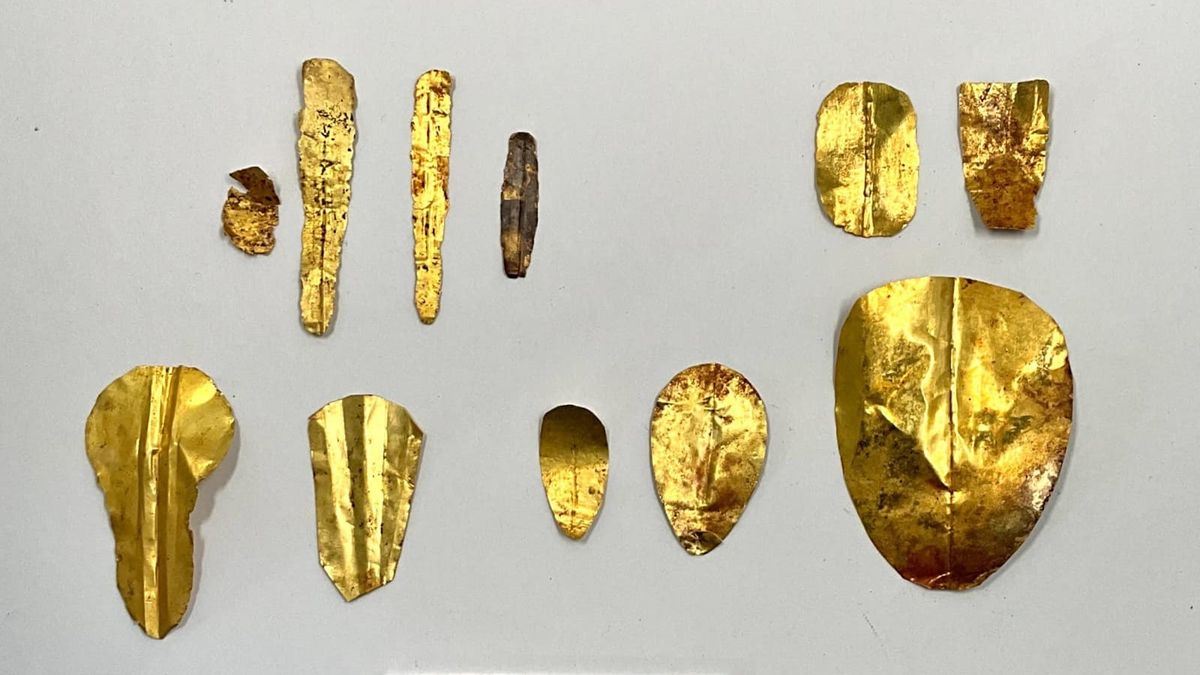Archaeologists in Egypt have discovered 13 ancient mummies with gold tongues and nails in a cemetery at the site of Oxyrhynchus.
The team made the finds when they dug down to the bottom of a burial shaft, revealing a hall with three chambers that held dozens of mummies. The human remains date to the Ptolemaic period (circa 304 to 30 B.C.), a time when a dynasty descended from one of Alexander the Great‘s generals ruled Egypt, according to two statements released by the Egyptian Ministry of Tourism and Antiquities.
Archaeologists had previously unearthed 16 gold tongues at Oxyrhynchus. The ancient Egyptians put gold tongues in mummies with the intention of helping the deceased speak in the afterlife, and because they believed that gold was “the flesh of the gods,” Esther Pons Mellado and Maite Mascort, co-directors of the Spanish-Egyptian archaeological mission at Oxyrhynchus, told Live Science earlier this year. The same team made the new finds.
“The number of gold tongues here is high, which is interesting,” Salima Ikram, an Egyptology professor at the American University in Cairo who was not involved with the latest excavation, told Live Science in an email. “Possibly the bodies belong to higher elites that were associated with the temple and animal cults that proliferated in the area,” Ikram said, noting it’s possible that gold tongues “might have been the vogue for the embalming house in the area.”
Related: Gold tongues found in 2,000-year-old mummies in Egypt
During the latest dig, the archaeologists also found 29 amulets with the mummies. Some amulets are in the shape of scarab beetles, as the ancient Egyptians associated scarabs with the movement of the sun across the sky. Other amulets are in the shape of Egyptian deities, including Horus, Thoth and Isis. Some of them have forms that combine multiple deities together.
The excavation also revealed wall paintings, including one that depicts a tomb owner named “Wen-Nefer,” who is shown being accompanied by several Egyptian deities. Another painting on the ceiling depicts the sky goddess Nut surrounded by the stars. There is also a painting of a boat that has multiple deities depicted on it.
“As for the paintings, the quality is really excellent and the freshness of colors is simply amazing,” Francesco Tiradritti, an Egyptologist at D’Annunzio University of Chieti-Pescara in Italy who was not involved in the dig, told Live Science in an email.
Live Science contacted the researchers who are excavating at Oxyrhynchus but has not heard back at time of publication.


